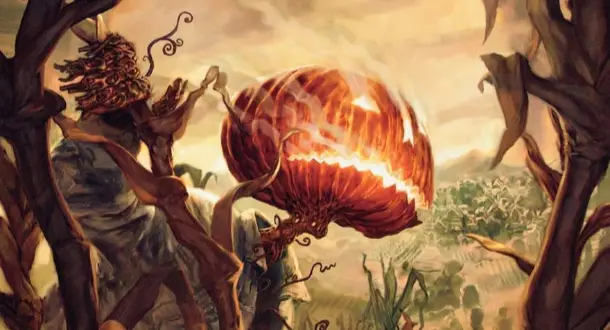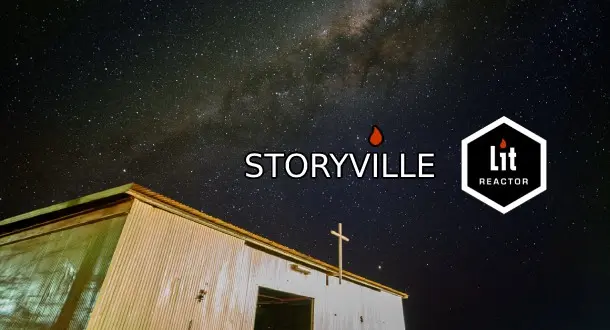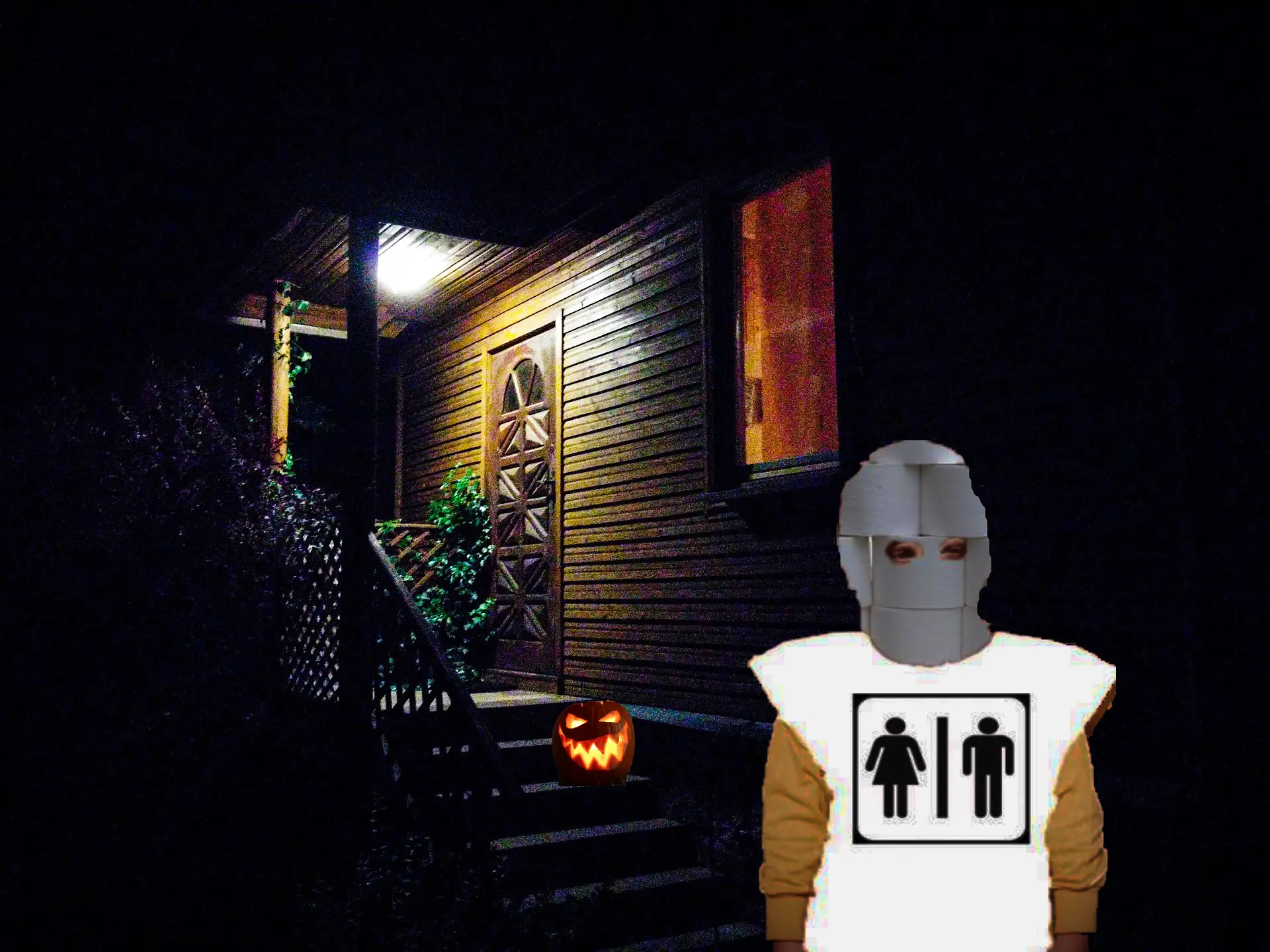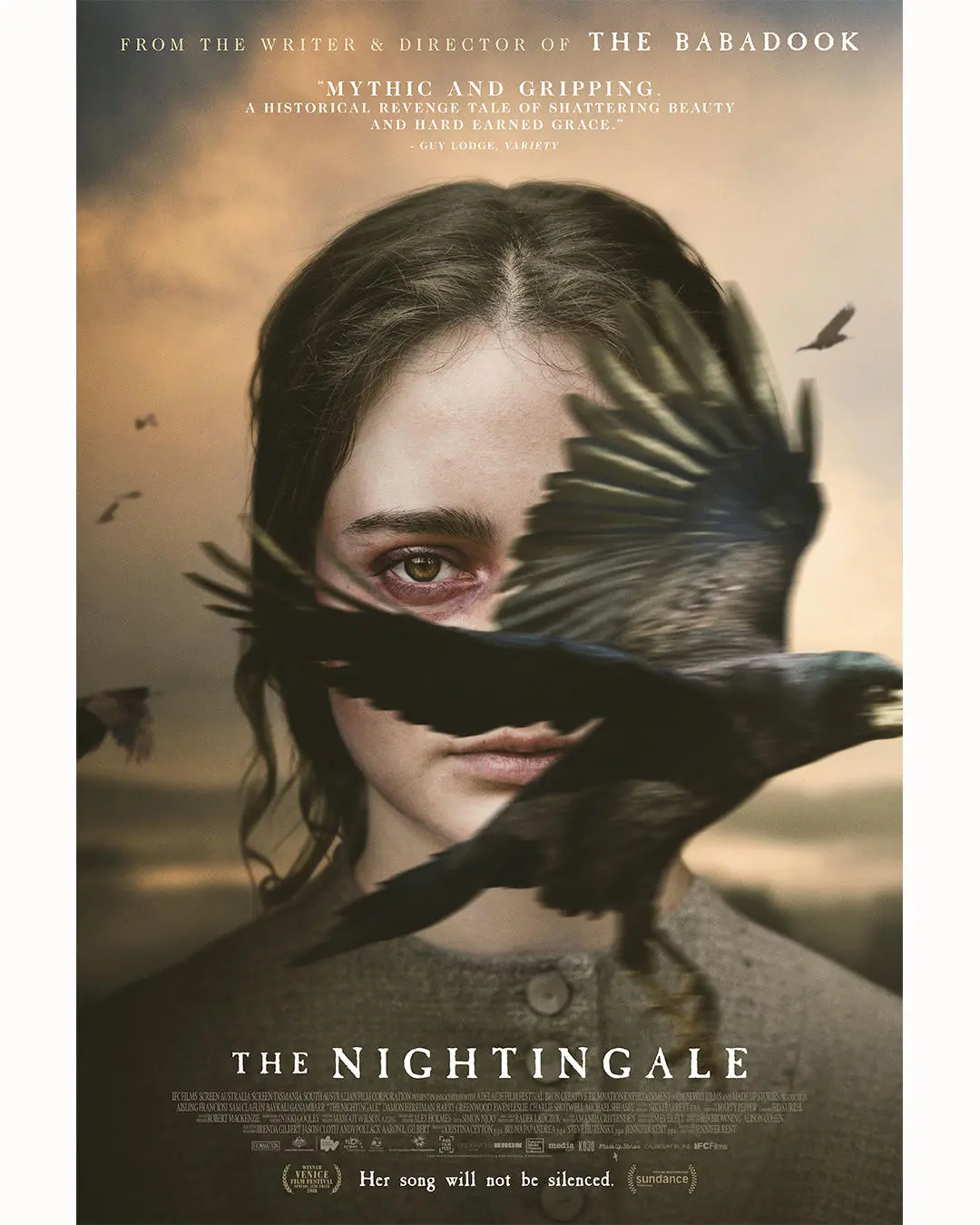Menu
Columns
Showing 3546 Columns
Showing 3546 Columns
October 30th, 2019

I'm a latecomer to the wonders and cheap thrills of a certain brand of horror novels. But now that I'm in, I'm ALL in. Did I start a book club to get people to read The Nest, the first book in Grady Hendrix's Paperbacks From Hell imprint? Yes, yes I did. Did my own sister attend? Yes. Did she read only to the point in the book where a young girl was eaten vagina-first by a mutated cockroach? Also yes.
Read Column →October 28th, 2019

cover for Dark Harvest by Norman Partridge, art by Jon Foster We all know about films set around October 31st: Halloween (1978) and its numerous sequels, all involving Michael Myers slaying teens on All Hallows Eve; Trick or Treat (1986), about a Satanic rock star planning his unholy comeback; Hocus Pocus (1993), the beloved family spooky movie starring Bette Midler and Sarah Jessica Parker; and Trick 'r Treat (2007), an anthology film connected by the spirit of the season, a little rascal named Sam, just to na
Read Column →October 25th, 2019

Freddy. Jason. Michael. This unholy trinity of horror icons represents a grimy, exploitative subgenre that exploded in the late 1970’s and dominated the 1980’s—the slasher. In celebration of Halloween, let’s take a deep dive into the slasher film—what it is, why we love it, and how the classic slasher is a purely cinematic experience that leverages the full power of the film medium.
Read Column →October 24th, 2019

Photo by Dennis Magati There’s something about knowing you’re not alone on the journey that makes it a million times easier. By journey, I mean life in the grander scheme, but also publishing, book-loving-and-writing, blogging...that journey as well.
Read Column →October 23rd, 2019

Image by Anna Shvets What do Octavia Estelle Butler, John Irving, and Dav Pilkey have in common? Other than being awesome writers, they are all dyslexic. Yeah. Read that line again. Dyslexic. Dyslexia is an annoying reading and writing disorder that often scrambles words, letters, and numbers on a page. How do I know this? I’m another dyslexic writer.
Read Column →October 21st, 2019

Perhaps you’re just beginning to dip your toes into the vast and glittering waters of speculative fiction. Maybe you’ve been reading sci-fi and fantasy for a while, but your library tends to be stocked with the genre’s male greats. Or it could be that you’re hoping to line your bookshelf with feminism, cultural anthropology, Taoism, and philosophy. One way or another, you’ve found your way to one of science fiction and fantasy’s greatest voices, Ursula K. Le Guin — and you want to know more.
Read Column →October 18th, 2019

So, I write a lot of scary stories—across horror, fantasy, science fiction—you name it. And one of the first things I do when I start thinking about the concept, is WHERE to set it. You can certainly lean into the tropes of classic dark fiction, but I encourage you to find new locations, less obvious places to start your tragic tales. Let me share with you a story about a recent project of mine.
Read Column →October 17th, 2019

Ben Cooper, Collegeville, Halco — these names meant Halloween for decades. The costumes they made were crappy. In terms of materials, looks, fit, really any objective measure, these companies made shitty getups. But they were also super fun, and besides, getting a crappy costume had a hidden advantage: If your costume from last year barely held up for one night of trick-or-treating, you HAD to get a new one for next year. Sure, you might want to be He-Man this year, but next year? That's for babies.
Read Column →October 16th, 2019

Triggering Content
Read Column →October 15th, 2019

I don’t always write when I witch, but I always witch when I write. This was not always the case. I began writing poetry when I was a teenager, as most people who write poetry do. I did not take it particularly seriously. In my 20’s I began to explore various mind altering techniques, ranging from meditation, yoga, ecstatic dancing to tarot card reading. Through the process of putting my mind and body through the paces of a psychic workout, I was able to become more grounded in my life, and to become more aware of myself and my feelings as they occurred.
Read Column →Submitting your manuscript?
Professional editors help your manuscript stand out for the right reasons.
